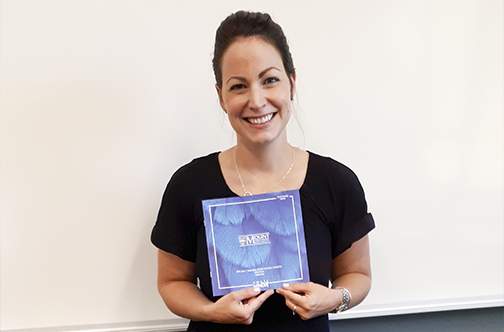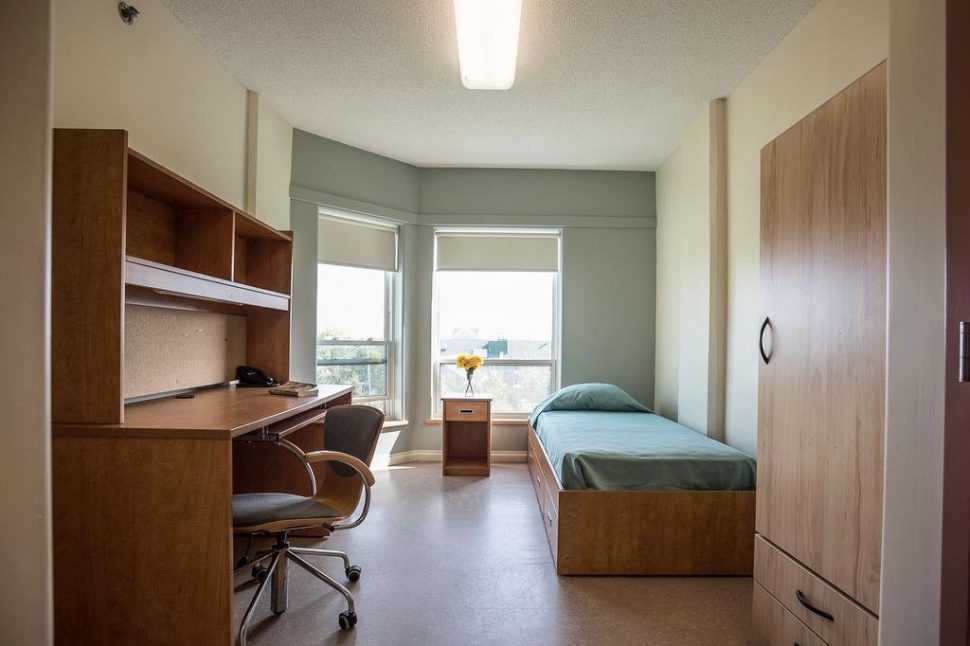(Jamaica Observer) Fewer than 10 Jamaicans attend Mount Saint Vincent University in Halifax, Nova Scotia, but international student recruitment officer at the institution, Jessica Brown, is hoping that will change with greater awareness of the programmes on offer.
Brown, who was speaking to guidance counsellors and students from Jamaica and The Bahamas on August 2, following EduCanada’s tour of the Canadian university, said significant support is given to the 800 international students enrolled there.
These students represent 18 per cent of the total population, travelling from over 70 countries, including The Bahamas, Bermuda, China, and India, where the majority are from.
At the same time, almost 10 per cent of international students are from the Caribbean, specifically British Virgin Islands, St Maarten, St Kitts & Nevis, Jamaica, Cuba, Turks and Caicos Islands, Antigua, and The Bahamas.
“Right now we have about 55 Bahamians on our campus. We have less than 10 Jamaicans [but] we’re growing and we want more students to come… We have a great reputation in Jamaica so we are hoping that we’ll have some more students from [there] study with us. We have Jamaicans both in our undergraduate and graduate-level programmes and we have a very large population of [Caribbean] students and we want more to come,” Brown stated.
Mount Saint Vincent, often referred to as The Mount by students and residents in surrounding communities, offers, according to Brown, degrees with a difference.
A warm, welcoming campus, The Mount — a mixture of modern and cut stone structure atop lush green landscape — sits only seven minutes away from downtown Halifax and mere metres from the coast.

Programmes are designed to challenge the status quo and make a positive difference in the Canadian society. The university offers over 40 programmes, inclusive of co-op education, across five faculties.
Co-op education, or co-operative education, is an academic programme divided into periods in which a student will be allowed to work in an industry related to their schooling. Most programmes are structured so that each term or semester of schooling is alternated with a term or semester of work.
“Our academic programmes stem from the Bachelor of Arts, Science, Professional Studies and then we have a post-graduate Bachelors of Education… We are strong in and are known for communication, public policy studies — linking business and politics and economics all together — women’s studies, chemistry; we have Canada’s number one voted chemistry professor. We also have one of the world’s leading researchers in Alzheimer’s disease.
“We have one of Canada’s only stand-alone public relations schools, so public relations [here] is highly employable — six times more jobs available for public relations professionals and journalism students and great paying jobs,” Brown outlined.
Students also have the option of participating in the university’s Global Community programme, which affords a great exchange opportunity to study for a semester in Spain, Korea or China.
As Brown puts it, the programme is a grand opportunity for students to engage in different cultural experiences.
For admission requirements, The Mount begins accepting students from as early as the Caribbean Secondary Education Certificate (CSEC) examination level.
“If you’re doing CAPE (Caribbean Advanced Proficiency Examination) and, of course CSEC, we need to see one, two or three grades; if you’re doing CAPE we need to see at least two in CAPE scores. So we will accept you right before you go to your CAPE if you wish… We also need to see a 70 per cent average, so typically C and higher in all of those scores. Some may require chemistry or math or science so it’s all very specific to your programme,” Brown explained.
International students considering The Mount can also anticipate new international student orientation, certified immigration consultation, student exchange and leadership programmes, career pathway assistance, free English Language support if applicable, academic and cultural advising, and free airport pick-up.
International students will also have access to the International Education Centre, specifically designed for them to provide support, assistance beyond graduation, along with personal, cultural, career, and immigration advice.
In addition, Mount Saint Vincent boasts the lowest tuition fee in Nova Scotia, primarily because of its debt-free status, Brown said.
“It’s not because we’re lesser than. I don’t want [people] to walk away thinking ‘Well, why is your tuition so much cheaper than so and so in Ontario.’ In Canada we have regulated tuition essentially, but we also have a mandate here as a university to never go in debt. So we are a debt-free university, which means that we can offer very stable tuition. We don’t have to always increase the tuition cost to meet our bottom line for our students,” Brown pointed out.
Tuition fees range from CAD$15,402 to CAD$16,166 for international undergraduate students. The cost for the International Student Health, which is mandatory unless they are covered under Nova Scotia’s provincial health plan, is CAD$618.
Textbooks and supplies, which are dependent on the programmes, range from CAD$800 to CAD$1,800. The student union fee is CAD$204 while miscellaneous fees may amount to CAD$359.
The Mount’s Financial Aid Office offers assistance with student loans, lines of credit, bursary applications and budgeting.
Each year, the university offers over CAD$2.5 million in scholarships and bursaries to students. You will be guaranteed a scholarship if you are a high school, domestic or international, applicant with an 80 per cent or higher average if you apply by March 1.
The university’s application fee is CAD$40.
For residence, The Mount offers single occupancy (Birches 1-4 or Assisi Hall) for CAD$9,872 inclusive of a meal plan; double occupancy (Assisi Hall) CAD$8,986 inclusive of a meal plan; single occupancy (Birch 5 mature/international) CAD$5,975 (plus CAD$908 meal plan); single occupancy (Westwood) CAD$10,599 inclusive of a meal plan; and apartment (Westwood, per occupant) CAD$6,871 (plus CAD$908 flex cash for food services).

